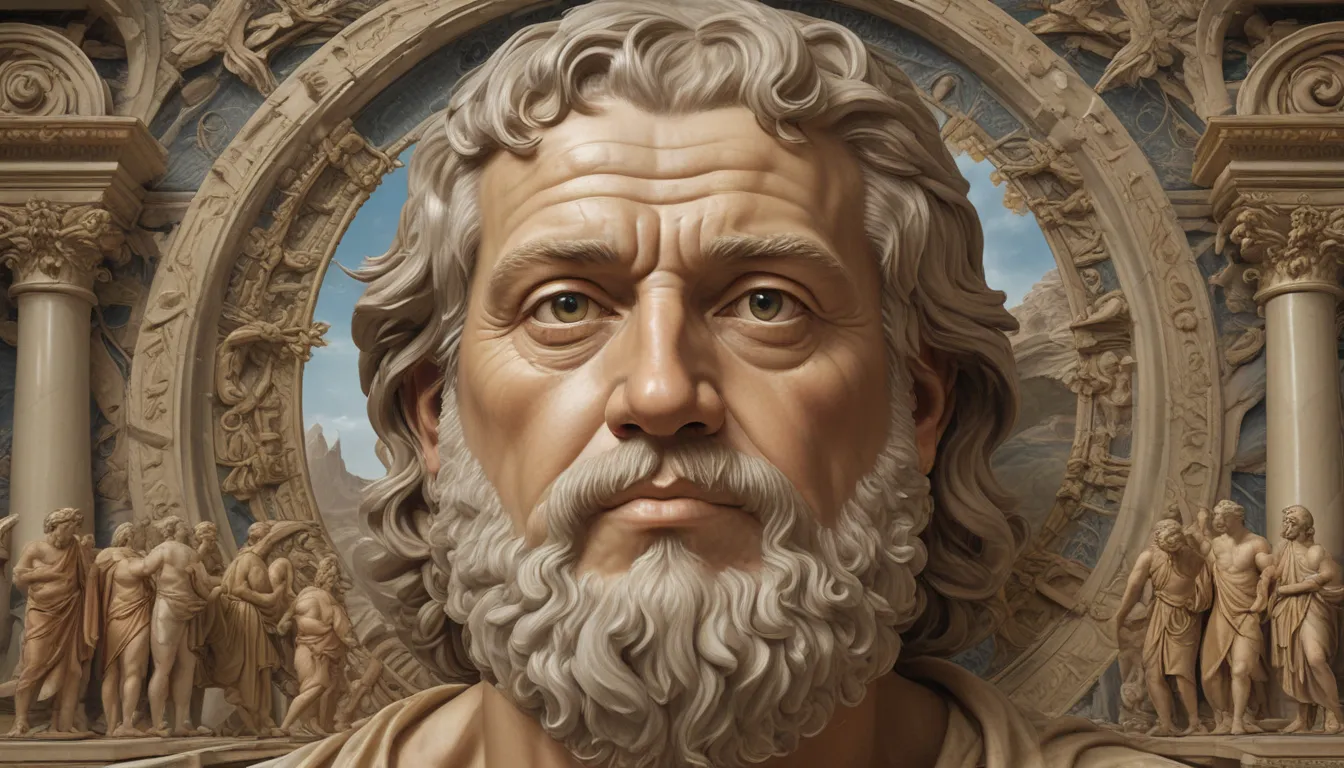The images in our articles may not match the content exactly. They are used to grab your attention, not to show the exact details in the text. The images complement the text but do not replace it.
Welcome to a captivating exploration of one of the most prominent figures in the history of philosophy, Plato. Join us as we delve into the fascinating world of this ancient Greek thinker, unraveling 11 intriguing facts that shed light on his life, ideas, and enduring legacy.
Unveiling Plato’s Origins
Plato, a towering figure in Western philosophy, was born circa 427 BC in Athens, Greece. His birth name was Aristocles, but he later adopted the name Plato, which translates to “broad” or “wide” in Greek, possibly reflecting his physical stature or broad-mindedness.
Embracing the Wisdom of Socrates
A pivotal moment in Plato’s life came when he became a devoted student of Socrates, another esteemed philosopher of ancient Greece. Socrates’ teachings left an indelible mark on Plato’s philosophical journey, laying the groundwork for his own profound theories.
The Birth of the Academy
Plato’s enduring legacy includes the establishment of the Academy, a renowned institution dedicated to the pursuit of knowledge and philosophical inquiry. This venerable establishment, which operated for nearly 900 years, stands as one of the earliest organized centers of learning in the Western world.
Dialogues: A Literary Legacy
One of Plato’s distinctive hallmarks is his use of dialogues to convey philosophical concepts. These dialogues, featuring conversations among characters that often include Socrates, span a wide array of topics, from ethics and politics to metaphysics and epistemology.
The Theory of Forms: A Philosophical Paradigm
Plato’s groundbreaking Theory of Forms posits that the physical world is a mere reflection or flawed copy of an ideal, eternal realm of Forms. These Forms, according to Plato, embody the true essence of reality and serve as the underlying basis for all that we perceive.
The Vision of the Philosopher-King
In his renowned work “The Republic,” Plato introduces the concept of the philosopher-king, an enlightened ruler who possesses both wisdom and moral integrity. He asserts that a harmonious society can only be attained when philosophers ascend to leadership positions or rulers embrace philosophical ideals.
The Allegory of the Cave: A Metaphor for Enlightenment
Plato’s Allegory of the Cave offers a compelling metaphorical journey from ignorance to enlightenment, symbolizing the transformative power of knowledge and the pursuit of philosophical enlightenment.
Embracing Immortality: The Soul’s Journey
Central to Plato’s philosophy is his belief in the immortality of the soul. According to his teachings, the soul endures beyond death, undergoing cycles of rebirth until it achieves unity with the ultimate reality.
A Foray into Politics
Driven by his philosophical convictions, Plato ventured into the realm of politics, seeking to translate his philosophical ideals into practical governance. He actively engaged with rulers, offering counsel in the quest to establish an ideal society grounded in philosophical principles.
Shaping Western Thought: The Enduring Influence of Plato
Plato’s profound philosophical ideas have had a lasting impact on the development of Western philosophy. His works continue to provoke debate and contemplation among scholars and thinkers worldwide, shaping the realms of ethics, politics, and metaphysics.
Legacy and Relevance: Plato’s Enduring Impact
Plato’s intellectual legacy transcends the boundaries of time, resonating with contemporary thinkers and scholars. His ideas serve as a wellspring of inspiration, enriching philosophical discourse and fueling ongoing exploration and contemplation.
Reflecting on Plato’s Enduring Significance
In conclusion, Plato’s enduring legacy as a philosopher, writer, and educator stands as a testament to his profound insights, innovative ideas, and engaging narrative style. His enduring influence reverberates across the annals of Western philosophy, securing his place as a seminal figure in intellectual history.
FAQs: Unveiling Plato’s Philosophical Tapestry
-
What did Plato contribute to philosophy?
Plato’s contributions to philosophy include the Theory of Forms, the concept of the philosopher-king, and the Allegory of the Cave. -
Was Plato a student of Socrates?
Yes, Plato was a devoted student of Socrates, deeply influenced by his mentor’s philosophical teachings. -
What is Plato’s most renowned work?
Plato’s seminal work, “The Republic,” encapsulates his ideas on justice, the ideal state, and human nature. -
What was the Academy founded by Plato?
Plato established the Academy in Athens, a bastion of learning and philosophical inquiry for centuries. -
How did Plato’s philosophy shape later thinkers?
Plato’s profound philosophical insights influenced subsequent thinkers, including Aristotle and luminaries of the Renaissance and Enlightenment eras, leaving an indelible mark on philosophical discourse.
Embark on a journey of discovery as you delve deeper into the multifaceted world of Plato, unearthing timeless wisdom and thought-provoking insights that continue to resonate with contemporary audiences. Join us in celebrating the enduring legacy of this legendary philosopher, whose philosophical vision transcends the boundaries of time and culture.






